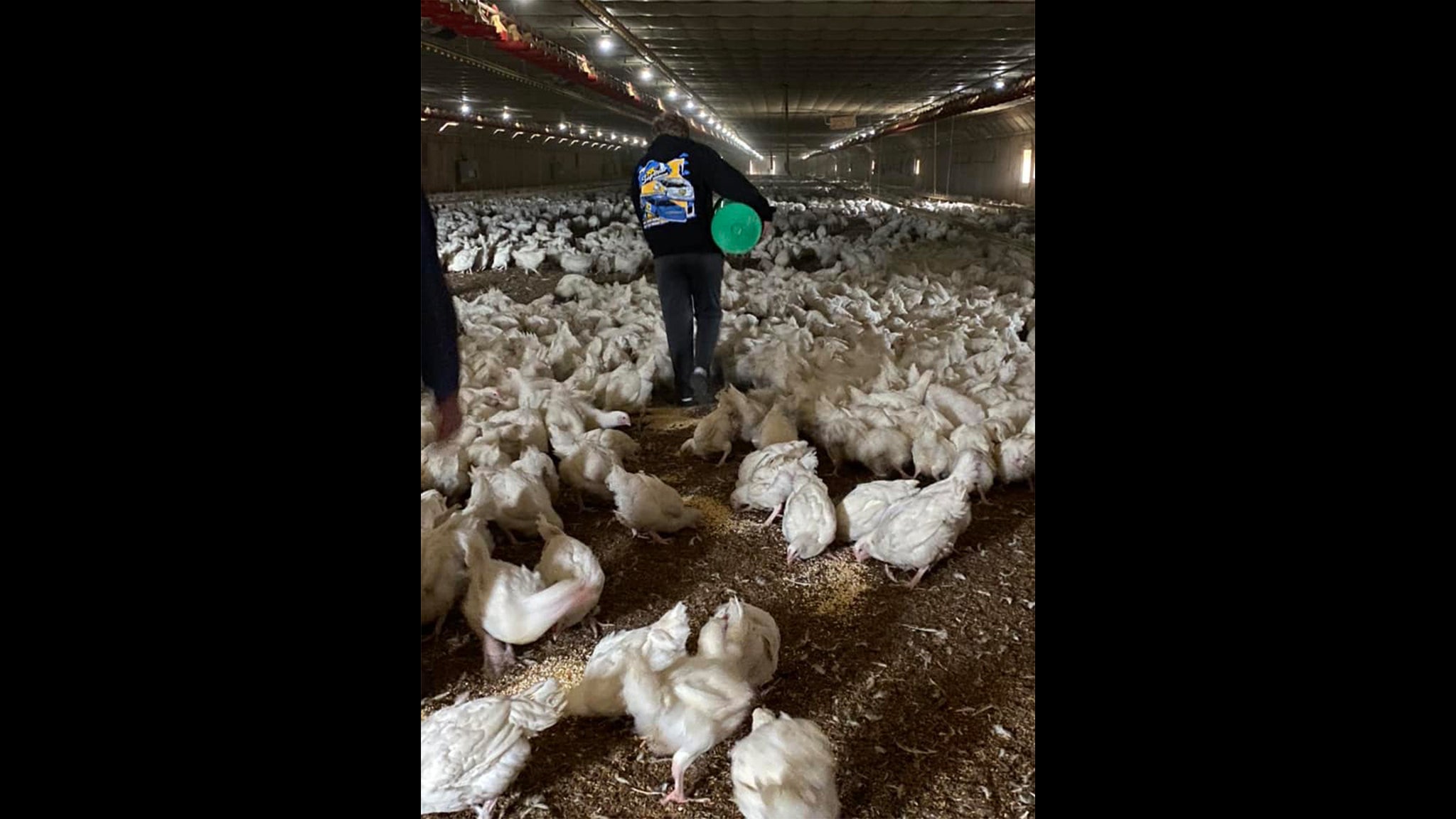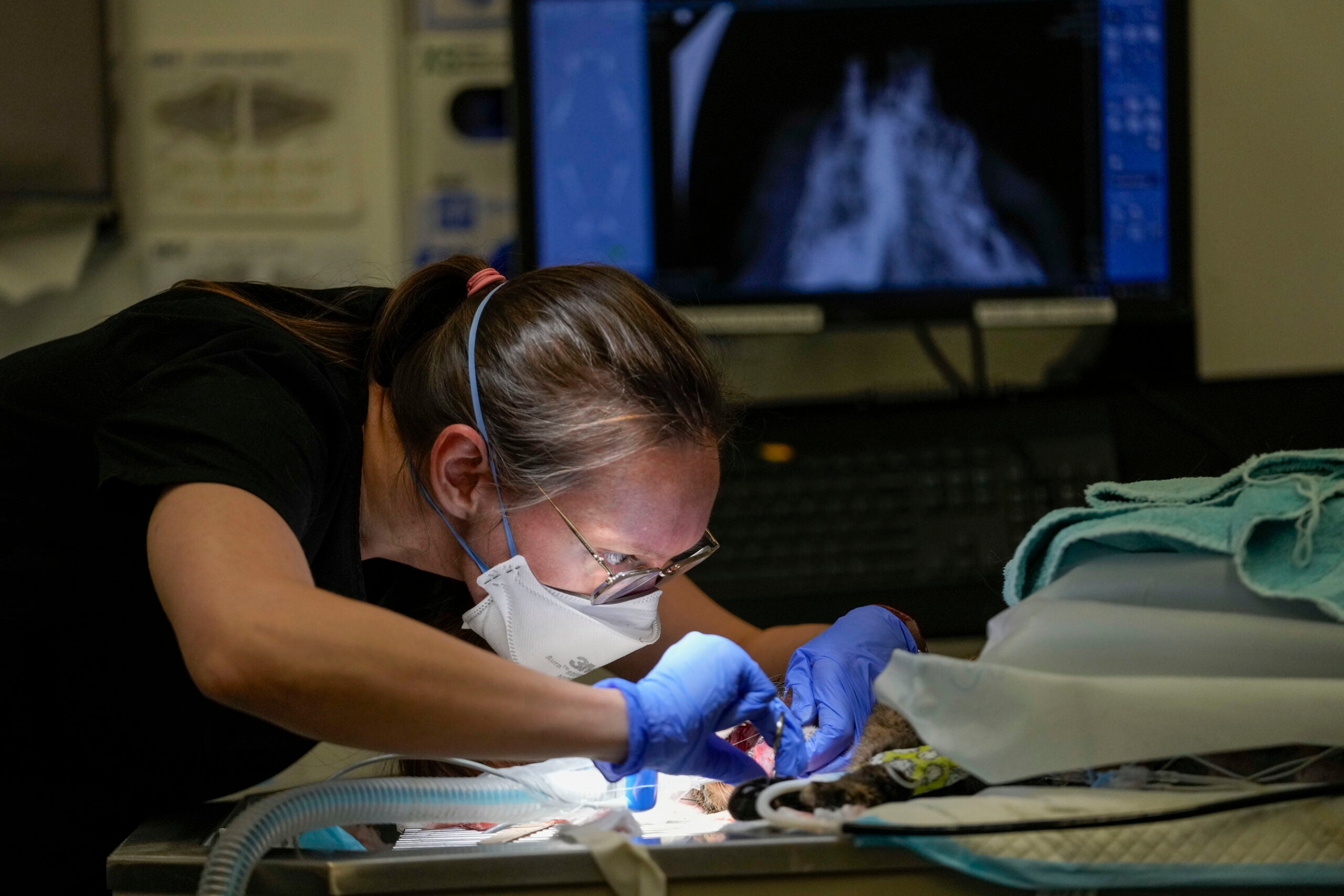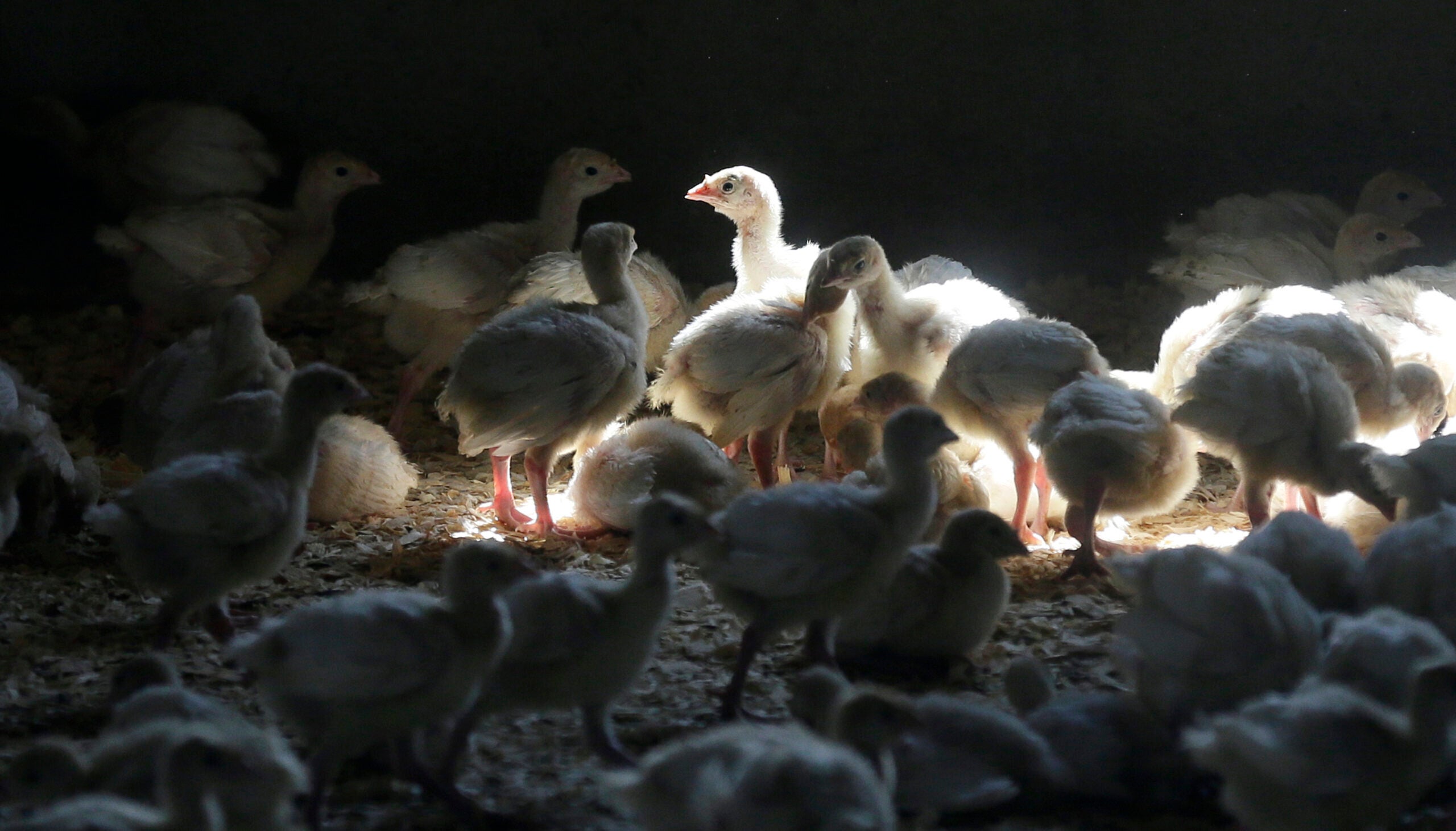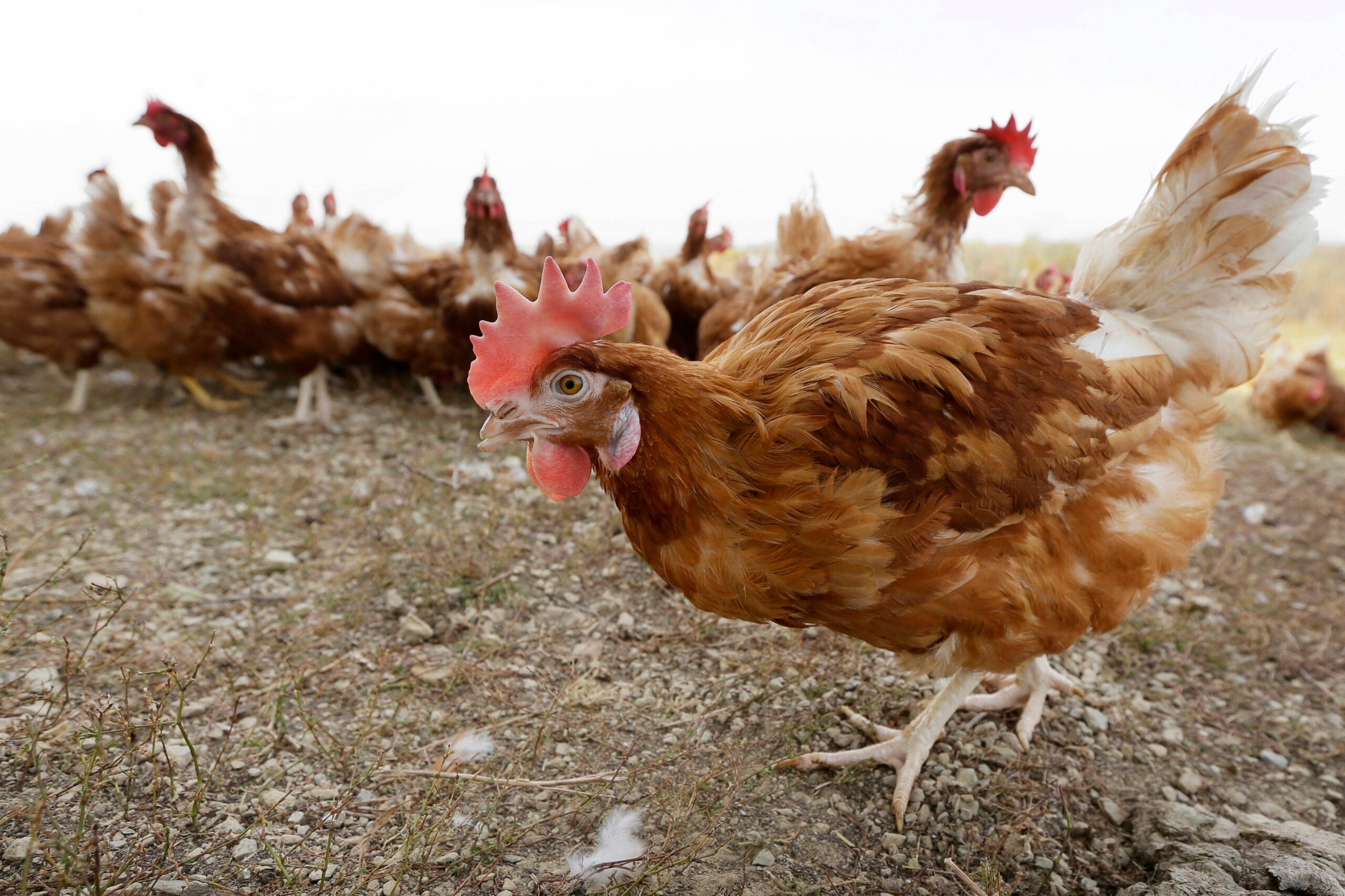At least six Wisconsin farms are giving away tens of thousands of chickens raised for meat through posts on Facebook after their contracted processor abruptly closed last week.
Pure Prairie Poultry filed for bankruptcy in Minnesota at the end of September. But because one of its creditors objected to the plan, the case was dismissed.
On Oct. 9, the company closed its processing plant in Charles City, Iowa and stopped paying for feed for the birds. Like most major poultry companies, Pure Prairie owns the chickens and contracts with farms to raise the birds on their behalf.
News with a little more humanity
WPR’s “Wisconsin Today” newsletter keeps you connected to the state you love without feeling overwhelmed. No paywall. No agenda. No corporate filter.
Greg Marten, a poultry producer near Mondovi, said the company owes him at least $90,000 in rent and other expenses. He had 45,000 chickens that Pure Prairie was supposed to pick up for processing on Oct. 6, but the company canceled with just a few days’ notice. Three days later, Marten was notified he could no longer get feed from his local supplier.
Marten said his contact with the company initially told him they would euthanize the birds on his farm. But he said the representative later said they didn’t have the money to do it.
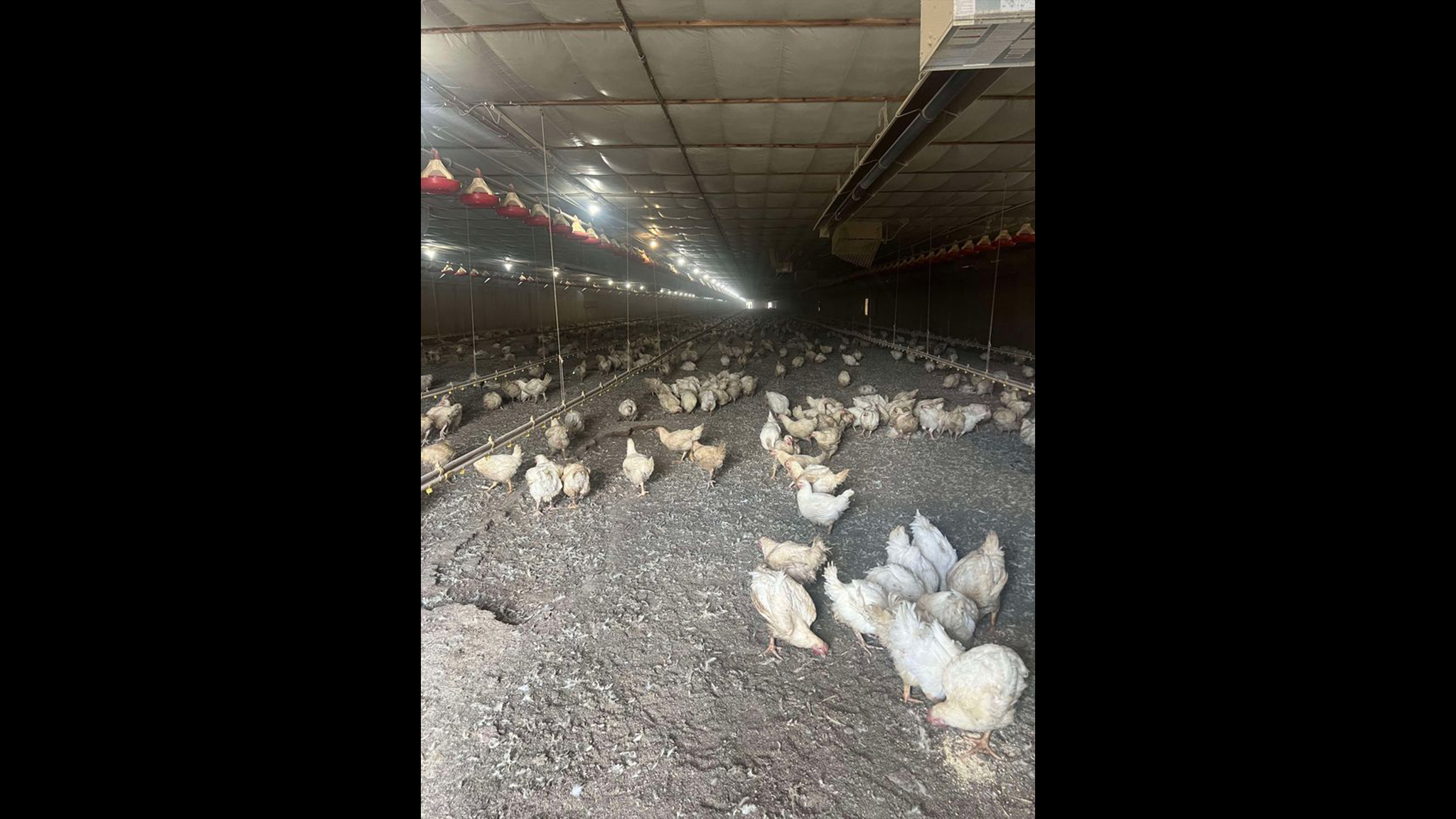
“I said, ‘Okay, so now what?’ and he wouldn’t give me an answer,” Marten said.
Kyle Nilsestuen, president of the Trempealeau County Farm Bureau, said some producers are paying $20,000 per week to continue feeding the animals, on top of the labor and facility costs. But the farms can’t legally sell the birds in order to recoup these costs.
“A lot of these farmers are heartbroken. They’re not sleeping because they know that this is not right,” said Nilsestuen. “They’re concerned for their flocks and their birds’ well-being.”
Through a series of Facebook and Reddit posts, people have shared the addresses of farms in Buffalo and Trempealeau counties, where people can come get the chickens for a donation or for free.
Marten said the idea came from a similar effort by Pure Prairie producers in Minnesota who were able to give away all of their chickens.
“A bunch of us kind of set it up different ways on Facebook, and then from there it caught fire,” he said. “My phone’s been ringing and dinging since last week, and I can’t keep up.”
He said dozens of people from all over Wisconsin, as well as neighboring Minnesota and Iowa have come out to his farm to pick up birds. He has about 15,000 left in his barns that he is still hoping to give away.
Marten said the best outcome will be if they can give away all of the birds to people who can use them. He said he’s not hopeful he will ever be repaid the thousands of dollars that he’s owed for raising them.
Jon Austin, a spokesperson for Pure Prairie, said in an email that the company has been “actively working to recover funds” in order to pay affected farmers. He said the bankruptcy filing had included a plan to pay growers and continue operations while restructuring or selling the company.
“We know that our difficulties are causing real hardship for our growers and for others and for that we apologize without reservation,” Austin said in an email.
He said the company is still committed to selling the business, with the hope that a new owner will reopen the plant and work with the affected farms.
Because farms like Martens are contractors for the poultry companies, Nilsestuen said they don’t have access to the same type of insurance programs that are available for crop growers or dairy producers at the state and federal level.
A spokesperson for the state Department of Agriculture, Trade and Consumer Protection did not return a request for comment by publishing time. But in a letter published by WAOW-TV, Wisconsin State Veterinarian Darlene Konkle told a company official that the state agency “does not have statutory authority to assume control of the birds” nor “any funding source to provide feed or other resources for the flocks.”
Nilsestuen said this situation shows that could be a “glaring oversight” for the industry and government agencies.
“Hopefully we’re able to correct it so somebody else does not have to bear the burden that these guys, these producers, are dealing with right now,” he said.
Editor’s note: This image for story has been updated to show chickens instead of turkeys.
Wisconsin Public Radio, © Copyright 2025, Board of Regents of the University of Wisconsin System and Wisconsin Educational Communications Board.

